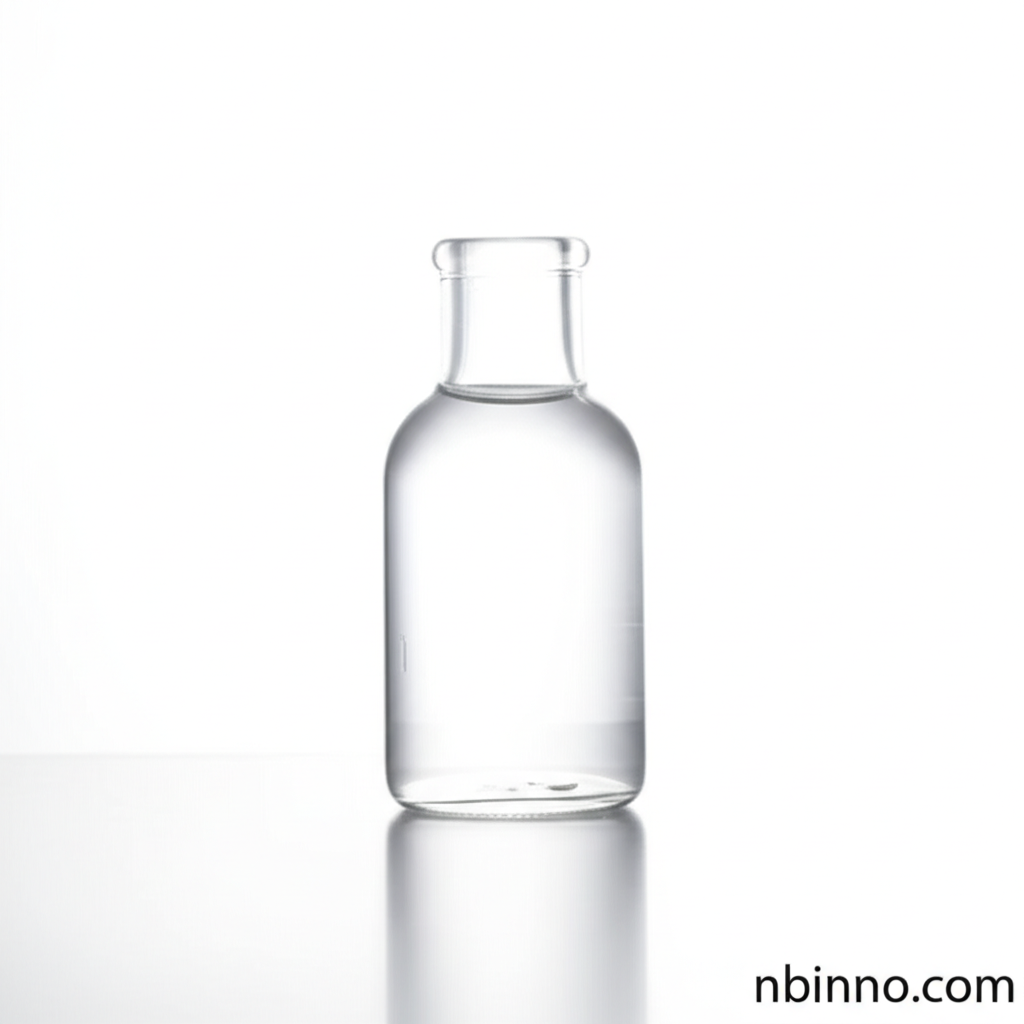Ethyl Acrylate: A Versatile Monomer for Coatings, Adhesives, and Specialty Polymers
Explore the diverse applications and essential properties of ethyl acrylate in modern industrial chemistry.
Get a Quote & SampleProduct Core Value

Ethyl Acrylate
Ethyl acrylate (EA) is a fundamental organic compound and a highly reactive monomer, crucial for synthesizing a wide array of polymers. Its chemical structure allows for excellent copolymerization with other monomers, leading to materials with tailored properties that are indispensable in many manufacturing processes.
- Discover how ethyl acrylate is a key building block for creating advanced polymers used in coatings, delivering superior durability and finish.
- Learn about the significant role of ethyl acrylate in the formulation of high-performance adhesives, enhancing bond strength and flexibility.
- Understand why ethyl acrylate is the monomer of choice for textile and leather treatment, improving material properties and longevity.
- Explore the benefits of using ethyl acrylate as a chemical intermediate for a broad spectrum of organic synthesis, driving innovation in various industries.
Key Advantages Offered
Versatile Copolymerization
Leverage the excellent copolymer characteristics of ethyl acrylate with other acrylates and vinyl monomers to achieve desired material properties.
Enhanced Flexibility and Adhesion
Benefit from ethyl acrylate's ability to impart softness, flexibility, and tack to polymer compositions, improving adhesive and binding properties to various surfaces.
Broad Industrial Applicability
Utilize ethyl acrylate across diverse sectors, including coatings, adhesives, textiles, leather finishing, and the production of synthetic rubber, demonstrating its wide-ranging utility.
Key Applications
Coatings and Paints
Ethyl acrylate serves as a vital component in synthetic resins for protective and decorative coatings, offering excellent weathering and UV stability.
Adhesives and Sealants
Its adhesive and binding properties make ethyl acrylate an essential monomer for formulating pressure-sensitive adhesives (PSAs) and hot-melt adhesives.
Textile and Leather Treatment
Ethyl acrylate polymers are used to enhance the properties of textiles and leather, acting as crack inhibitors and improving the overall finish.
Synthetic Rubber Production
When copolymerized with chloroethyl vinyl ether, ethyl acrylate contributes to synthetic rubber with good oil and heat resistance, suitable for specific applications.
